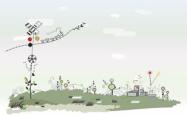Exploring the Comprehensive Aspects of Educational Philosophy in English
Education, as a fundamental aspect of human development, has always been a subject of intense debate and discussion. The concept of educational philosophy, in particular, encompasses a wide range of ideas and principles that guide the process of teaching and learning. This essay aims to explore the various components that constitute educational philosophy, focusing on its significance in shaping the future of education.
First and foremost, educational philosophy includes the purpose of education. This is a fundamental question that educators must answer: what is the ultimate goal of education? Some may argue that the purpose is to prepare students for the workforce, while others believe it is to foster critical thinking and problem-solving skills. Regardless of the perspective, the purpose of education is a guiding principle that influences curriculum development, teaching methods, and assessment strategies.
Secondly, educational philosophy addresses the nature of knowledge. This component delves into questions about what knowledge is, how it is acquired, and its value. For instance, some educational philosophies emphasize empirical knowledge gained through experience and observation, while others prioritize theoretical knowledge derived from logic and reason. The nature of knowledge has significant implications for the content of education and the methods used to teach it.
The third aspect of educational philosophy is the role of the teacher. Different philosophies place varying degrees of importance on the teacher's role. Some see the teacher as a facilitator of learning, guiding students to discover knowledge on their own, while others view the teacher as the primary source of knowledge, imparting information to students. The role of the teacher is crucial in determining the dynamics of the classroom and the learning experience.
Fourthly, educational philosophy considers the nature of the learner. This involves understanding how students learn, their individual needs, and their potential for growth. Some philosophies focus on the innate abilities of students, suggesting that education should be tailored to each student's unique strengths and interests. Others emphasize the importance of discipline and structure, believing that students need guidance to reach their full potential.
The fifth component is the curriculum. Educational philosophy influences the selection and organization of the subjects and topics that are taught. Different philosophies may prioritize different subjects, such as mathematics and science in a utilitarian approach, or literature and the arts in a more humanistic approach. The curriculum is a direct reflection of the educational goals and values held by a society or an institution.
Sixthly, educational philosophy encompasses teaching methods and strategies. This includes the techniques used to convey information, engage students, and assess their understanding. Some philosophies advocate for a more traditional, lecture-based approach, while others promote interactive and experiential learning. The choice of teaching methods is closely tied to the educational goals and the nature of the learner.
The seventh aspect is assessment and evaluation. Educational philosophy influences how student progress is measured and how success is defined. Some approaches focus on standardized testing and quantitative measures of achievement, while others emphasize qualitative assessments and holistic evaluations of student growth.
Lastly, educational philosophy includes the broader context of education, such as the role of education in society and its relationship with culture, politics, and economics. This involves considering how education can contribute to social justice, equity, and the overall well-being of individuals and communities.
In conclusion, educational philosophy is a multifaceted concept that encompasses a wide range of ideas and principles. It includes the purpose of education, the nature of knowledge, the role of the teacher, the nature of the learner, the curriculum, teaching methods, assessment, and the broader context of education. Understanding these components is essential for educators, policymakers, and anyone involved in the field of education, as they shape the direction and quality of education. By reflecting on and discussing these aspects of educational philosophy, we can work towards creating a more effective and equitable educational system that meets the needs of all students and prepares them for the challenges of the future.
1.本站遵循行业规范,任何转载的稿件都会明确标注作者和来源;2.本站的原创文章,请转载时务必注明文章作者和来源,不尊重原创的行为我们将追究责任;3.作者投稿可能会经我们编辑修改或补充。








